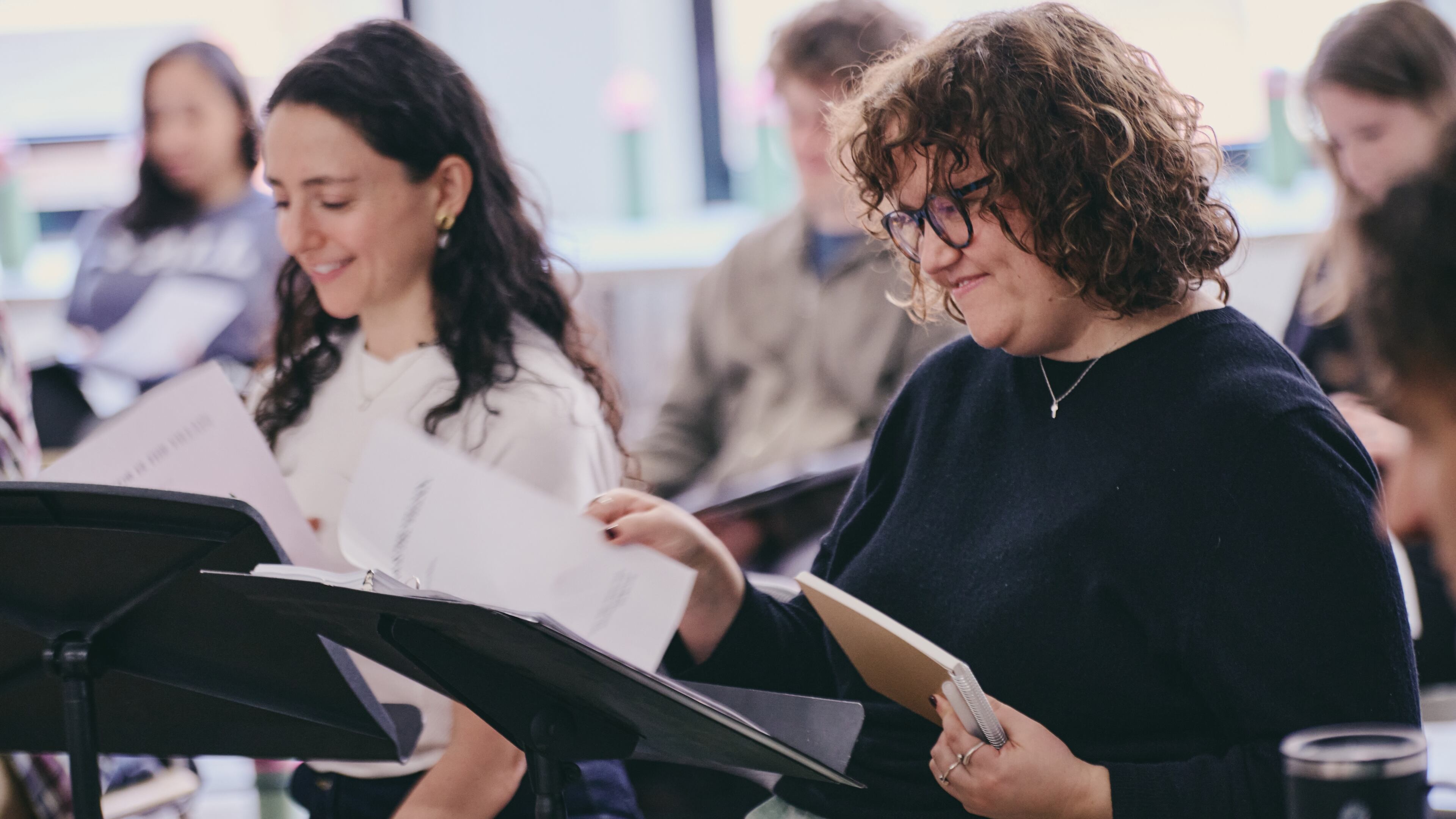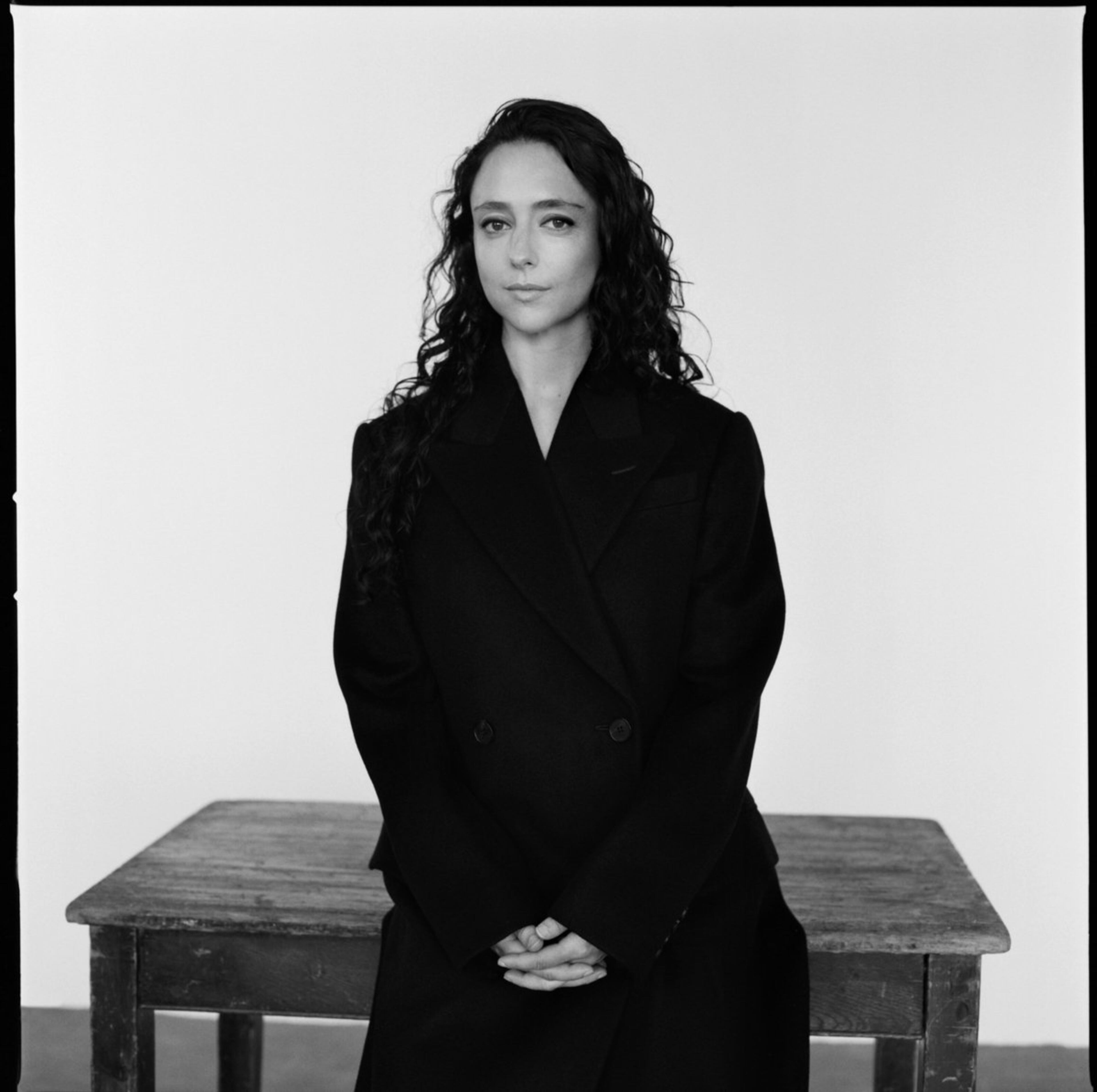Atlanta playwright Kimberly Belflower shows her Southern roots on Broadway

This story was originally published by ArtsATL.
When Atlanta playwright Kimberly Belflower came up with the title “John Proctor Is the Villain,” she knew that if she could write a play that lived up to that title, she would have something special on her hands. Little did she know that, years later, that story of youthful defiance would become her Broadway debut.
Seven years after its inception, “John Proctor Is the Villain” is now in previews at Broadway’s historic Booth Theatre.
An ambitious dramedy that reexamines Arthur Miller’s “The Crucible” through a feminist lens, “John Proctor Is the Villain” emerged in late 2017 as a response to the #MeToo movement. As Belflower watched previously silenced women come forward with numerous stories of being abused by powerful men — while said powerful men declared the entire movement a “witch hunt” — the idea for the play began to take root.
At its core, “John Proctor Is the Villain” is a story about a group of modern-day high school students who navigate their own identities and relationships to their femininity as they challenge their English teacher’s assertion that John Proctor, the protagonist of Miller’s original play, is one of the great heroes of the literary canon.

Though the play had its world premiere in Washington, D.C., in 2022 and another production in Boston last year, there is something deeply special to Belflower about making a Broadway debut. Much of that excitement she attributes to the cast and creative team, which includes Tony Award-winning director Danya Taymor (“The Outsider”) and a cast featuring “Stranger Things” star Sadie Sink and Tony-winning actor Gabriel Ebert.
“Danya Taymor is a god among directors,” Belflower says. “Our dramaturge, Lauren Halvorsen, has been instrumental in the play’s development since 2018. Our design team is nearly all women and filled with the most incredible artists. Our cast and company as a whole is just remarkable beyond words.”
“When it was coming together, I thought, ‘It’ll feel real once I’m up there for rehearsals,’ and now that we’re well into previews, I’m starting to think that maybe it will just never feel real,” she adds.

Belflower has also cherished the collaborative atmosphere that this team has built. “I’m someone who deeply loves the process, and our rehearsals and meetings have been filled with such rich conversations and experiments that will live in my heart forever.”
Many of these conversations focus on the play’s themes of adolescence and reclaiming the past, something that echoes through much of Belflower’s work. “I’m forever fixated on girlhood,” says the playwright, “the ways those potent, adolescent moments of huge personal change can resonate throughout our lives. As we grow, our relationship to our past selves changes. It’s a nesting doll of time to be a person in the world.”
While Belflower is not the first Atlanta artist to have work produced on Broadway, “John Proctor Is the Villain” stands out among those works for the extent to which it’s steeped in Southern culture. The production takes place in a one-stoplight town in rural Georgia, featuring an array of characters of different races, genders and classes to represent the diversity of Southern experiences.
The play also spotlights the state of the education system in Georgia — to which, as a playwriting professor at Emory University, Belflower is uniquely suited to speak. “It’s the play that lives closest to me and uses my Southern roots most deeply,” says the native of rural White County.
“John Proctor Is the Villain” also stands out for its startling timeliness. “I started writing the play during the first Trump administration, and here we are again,” Belflower says. “It examines cycles of power and patriarchy, and to see the play itself in a moment of history repeating can feel pretty bleak sometimes.”
Despite the disheartening echoes of reality in the work, Belflower continues to cling to her art as a form of hope and resistance. “I think the play ends on a defiant and hopeful note, emphasizing the importance of taking care of each other in a way that structures and institutions refuse to.”
::
Luke Evans is an Atlanta-based writer, critic and dramaturge. He covers theater for ArtsATL and Broadway World Atlanta and has worked with theaters such as the Alliance, Actor’s Express, Out Front Theatre and Woodstock Arts. He’s a graduate of Oglethorpe University, where he earned his bachelor’s degree, and the University of Houston, where he earned his master’s.

MEET OUR PARTNER
ArtsATL (artsatl.org) is a nonprofit organization that plays a critical role in educating and informing audiences about metro Atlanta’s arts and culture. ArtsATL, founded in 2009, helps build a sustainable arts community contributing to the economic and cultural health of the city.
If you have any questions about this partnership or others, please contact Senior Manager of Partnerships Nicole Williams at nicole.williams@ajc.com.


